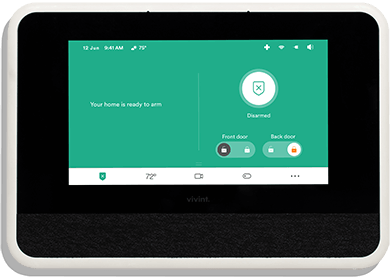Smoke detectors to alert of fire are pretty much a given. But the need for a warning system and protection from carbon monoxide are often overlooked.
Carbon monoxide (CO) poisoning is a serious health risk in homes across America. With fire comes the smell of something burning and often visible smoke. But that's not the case with CO. It's called the silent killer — a toxic, colorless, odorless and tasteless gas that's hard to detect, and carbon monoxide poisoning can potentially kill those who are exposed.
Everyone is susceptible to CO poisoning and those with weakened immune systems are placed at greater risk. This includes small children, those with chronic diseases, asthma, and the elderly.
This harmful gas kills more than 500 people in the United States annually and leaves more than 10,000 people poisoned each year, according to the National Conference of State Legislatures. For this reason, many states require CO detectors in residential homes. A carbon monoxide detector should be considered as important to your home as a smoke detector.
A Guide for Carbon Monoxide Detector Placement
A common question people have is where to place carbon monoxide detectors. The garage is one of the main places where CO accumulates, and preventing a buildup is critical. Although requirements for carbon monoxide detector placement in the home have increased, many people overlook the need to install CO alarms in the garage.
Most garages house anywhere from one to three cars per family and an assortment of other belongings. A garage can be attached or detached and is often treated as an actual extension of your home with a workspace, areas for children to store toys and places for pets to play.
Why is having carbon monoxide detectors in your garage beneficial?
Since CO is found in the fumes from your vehicles, these toxins can accumulate in your garage. Even household appliances such as boilers, water heaters, and central heating systems that run on fuel are sources that can produce CO. Left unchecked, even your furnace can contaminate the air.
If the garage is attached to your home, the poisonous fumes spread and leach into your property. Proper carbon monoxide detector placement in the garage is a protection for you and your family because it can quickly notify you of any carbon monoxide issues before it enters your living space and creates a state of emergency — crucial when people are sleeping and unaware.
How to install a carbon monoxide detector
It's simple to install a CO detector in your garage and have it connected to your home security system. If the CO level reaches a high enough concentration, it triggers the alarm, warning the family to leave the garage. CO alarms will sound until the garage is cleared of gas. Remember, fire and smoke don't have to be present for the alarm to sound.
If you're still wondering where to place carbon monoxide detectors, here are some specifics: If your garage is enclosed and attached to your home, close to a room occupied by residents, be sure to place a CO detector within 10 feet of the door to the garage. It's also important to place a CO detector in any rooms above the garage, particularly close to a sleeping area.
Maintain any machinery with small engines housed in the garage. Don't run your car, any generators or other types of equipment inside your garage with the doors closed. It's important to be particularly careful of fuel burning devices that have the potential of smoke or even fire as carbon monoxide levels can build.
Properly maintain your CO detector
Even with correct carbon monoxide detector placement, these devices do require some maintenance, especially devices with a battery. When the battery level runs low, many CO detectors include a product safety feature that will beep to alert you the battery needs to be changed.
Installation of a CO detector in your garage is a necessary component of complete home safety. Since CO is difficult to detect, placement of a detector in your garage is the only way to stop a potential emergency and tragic situation from occurring.
Learn more ways to protect your family by speaking with a Vivint representative today.
















